Comparison of kefir, fermented baked milk and yogurt
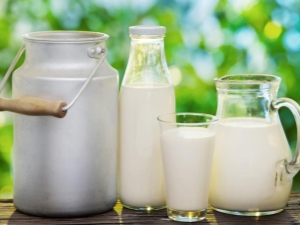
Currently, the range of dairy products is quite diverse. Although the main characteristics of almost all are similar, there are still differences: in composition, in the method of manufacture, in taste and in appearance. In order to choose the right product, you need to delve deeper into the nuances of the manufacturing process and the use of products.
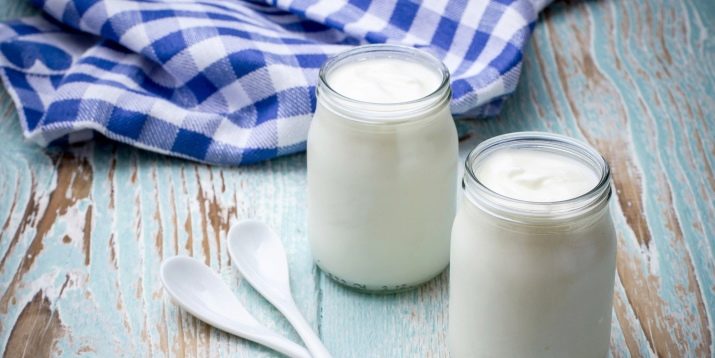
Similarities
Yogurt, kefir and fermented baked milk belong to fermented milk products and have a beneficial effect on the human body, improving its general condition and increasing immunity. All three subspecies are made from milk by fermenting it with various microorganisms under regulated production conditions.
Positive characteristics of all natural fermented milk products:
- are sources of vitamins and microelements;
- contribute to the normal functioning of the digestive system, improving metabolism;
- are used in various diets to remove toxins and toxins and contribute to the fight against excess weight.

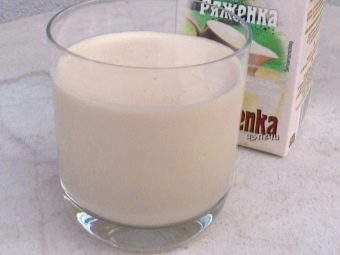
The established algorithm for the manufacture of all three types of product at industrial enterprises includes the following main points:
- the process of cleaning milk and optimizing the fat content in it;
- dispersion and homogenization of the milk composition;
- carrying out the pasteurization procedure of the liquid and its subsequent cooling;
- implementation of the fermentation process at a certain temperature;
- cooling the composition to 10-12 degrees and subsequent infusion of the product (lasts from 12 hours to a day);
- bringing the liquid to a temperature equal to 4-6 degrees;
- packaging of the finished product.
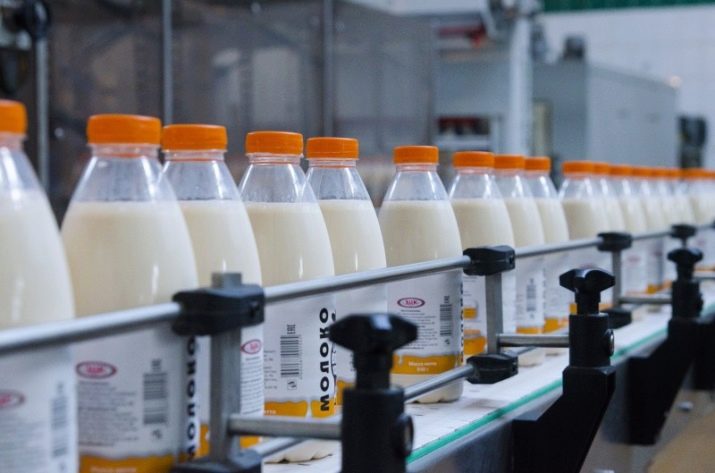
Used in this process similar production food equipment, consisting of:
- equipment for receiving raw milk;
- a special container for its storage, fermentation and further infusion of fermented milk products;
- heat exchange device;
- unit for mixing and dispersion of raw materials;
- food pumps;
- equipment for homogenization and pasteurization of milk composition;
- a special installation for packaging in containers in which the final product will be sold.
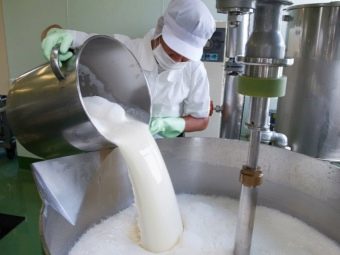
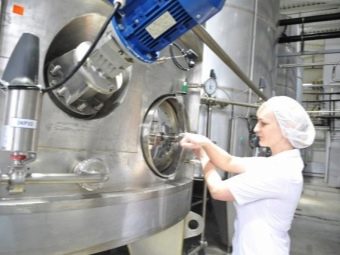
The conditions and terms of storage of all three products are the same, they need to be kept in refrigerators for no more than 5-7 days. We are talking about natural, "live" products.
Ryazhenka is also related to Varenets and Turkic katyk, matsoni and yogurt without additives. Products such as koumiss and ayran are more similar to kefir due to the addition of special fungi.


What is the difference?
There is a difference in the properties of all these products, which lies in the individual characteristics given below.
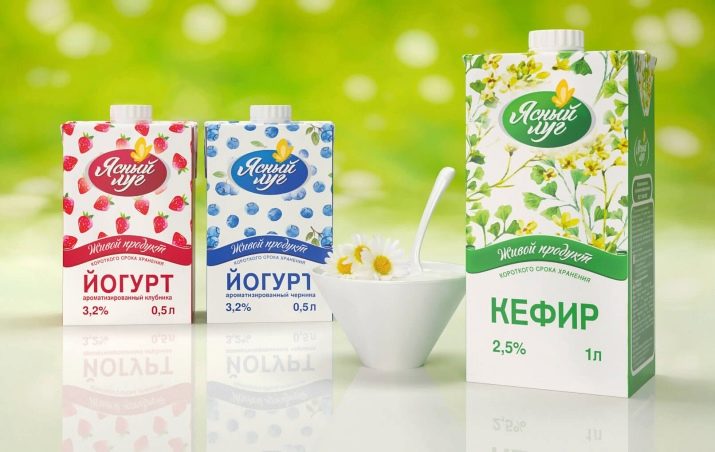
Yogurt
Bulgaria is considered the birthplace of yogurt. When fermenting this product, various types of Bulgarian sticks and thermophilic streptococcus are used. The composition of most yogurts implies the presence of milk powder in it, which in itself also has beneficial characteristics and contributes to the survival of the right bacteria during the manufacture and storage of the product.
The sourdough elements that are used in the yogurt making process are most efficient in fermenting lactose. It is for this reason that the product is suitable for use by people whose body does not digest milk well or at all.
And also this fermented milk product is less than others susceptible to the effects of gastric juice, so that beneficial bacteria can survive to enter the human intestinal tract.
If we talk about taste, then natural yogurt is quite neutral, but fruit fillers brighten up this fact. Another difference is the high content of protein, in the same kefir its amount is much less.


Kefir
Homeland is the North Caucasus. This subtype of fermented milk product is obtained by adding a rather complex fungal starter, which is a symbiosis of lactic acid microorganisms and yeast. Kefir is infused a little longer than other products (from one to three days). The product has the property of inconstancy even during use, since fresh kefir tends to have a laxative effect, and three-day - on the contrary.
One of the most useful properties is the content in the composition of bacteria that are able to settle on the walls of the intestine and put in order its microflora, improve the digestion process.
Most often, kefir is made without the use of food fillers, so it has a characteristic sour taste. The product goes well with meat, fish, poultry, eggs and other dishes that contain proteins. Kefir can form clots and gas-forming elements, as a result of which it is not recommended for people with a sensitive gastrointestinal tract.

Ryazhenka
The homeland of the product is Ukraine.The main difference between fermented baked milk is that it is based on baked milk. That is why it has a characteristic creamy hue. The fermentation process of the product is carried out by adding thermophilic lactic streptococci and pure cultures of the Bulgarian stick to the milk.
During the manufacturing procedure, a large amount of water is evaporated from the product, as a result of which the concentration of useful elements in it is higher than in other fermented milk products. But ryazhenka is much more high-calorie and fatter than kefir, as a result of which it is not suitable for dietary nutrition. The product has a delicate and sweet taste. The formation of milk foam is allowed. It goes well with various fruits and berries, as well as bread without yeast.

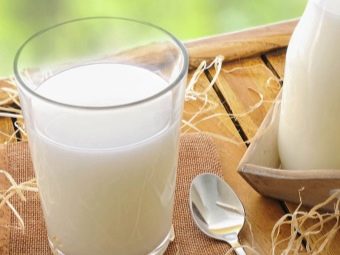
What is more useful?
All fermented milk products have a positive effect on the body, improve metabolism. It is impossible to say exactly which product is better and healthier: yogurt, fermented baked milk or kefir. It all depends on individual preferences and needs. For example:
- for diet food, natural yogurt or kefir is more suitable due to its low calorie and fat content;
- kefir is not recommended for people who suffer from diseases of the stomach or intestines due to the content of gas-forming elements;
- kefir has a high calcium content, which is well absorbed and promotes the absorption of other foods, rich in other trace elements (fluorine, iodine, copper);
- the microorganisms contained in kefir can stop the reproduction of harmful microbes and remove toxins;
- in the composition of fermented baked milk, the concentration of useful substances is higher due to the evaporation of a large amount of water during heat treatment, it contains vitamins and other useful elements, such as calcium, magnesium, phosphorus, sulfur and iron;
- ryazhenka can be consumed even by people with high acidity of the stomach;
- natural yogurt has the ability to rid the human body of streptococci, typhoid bacilli and staphylococci;
- yogurt without unnecessary additives has a large amount of vitamins, organic and saturated fatty acids, mono- and disaccharides, micro- and macroelements.

Recommendations for children
Special recommendations for the use of these products in childhood are also available. So, kefir can be given even to small children, but after the introduction of cereals and various baby purees. Infants up to 8-9 months are still not recommended for use because of their composition. For example, casein (milk protein) can cause an allergic reaction, and the intestines of a very young child simply cannot cope with it.

The use of such a product implies an increased burden on the kidneys and digestive system. Premature introduction of a fermented milk product into a child's diet can contribute to the development of diarrhea and anemia.
Give children yogurt start with a daily dose of 20-30 ml, gradually increasing it to a volume of 200 ml. You should not buy an ordinary product, but a children's one, the composition of which is adapted to only a developing organism. Natural yogurt without unnecessary additives and preservatives can be given to children in its natural form or fruit (berry) puree can be added. The recommended daily dose for a child aged 8-9 months is 100-150 ml.

Tips
Here are some important tips for purchasing and using fermented milk products.
- A one-day yogurt will relieve constipation, and a three-day one is suitable for people suffering from gastritis with low acidity and chronic colitis (accompanied by diarrhea).
- You should buy all fermented milk products only with a shelf life of no more than 5-7 days, since beneficial microorganisms live very little.
- It is necessary to replace yoghurts with dyes, preservatives and various flavors with natural ones with the addition of fresh fruits, since only such a product will bring proper benefits.
- It is possible to freeze kefir at home to obtain natural cottage cheese when defrosted, since at negative temperatures milk protein coagulation begins to occur. The curd is soft and fluffy.
- All fermented milk products are recommended to be consumed during intensive antibiotic treatment. This will help several times reduce the negative impact on the body of strong medicines and support the vital activity of beneficial microorganisms.
- In case of poisoning with heavy metals, it is also necessary to use dairy and sour-milk products to remove toxic substances.
- All products can be prepared at home if you purchase a special composition for fermentation at the pharmacy. Such products will be even more useful.

In this way, all fermented milk products will be useful, but individual intolerance to the body and diseases of the gastrointestinal tract should be taken into account. When choosing a product, you need to pay attention to the shelf life and composition, which should not contain unnecessary components.
About what fermented milk product should always be in your refrigerator, see below.

















